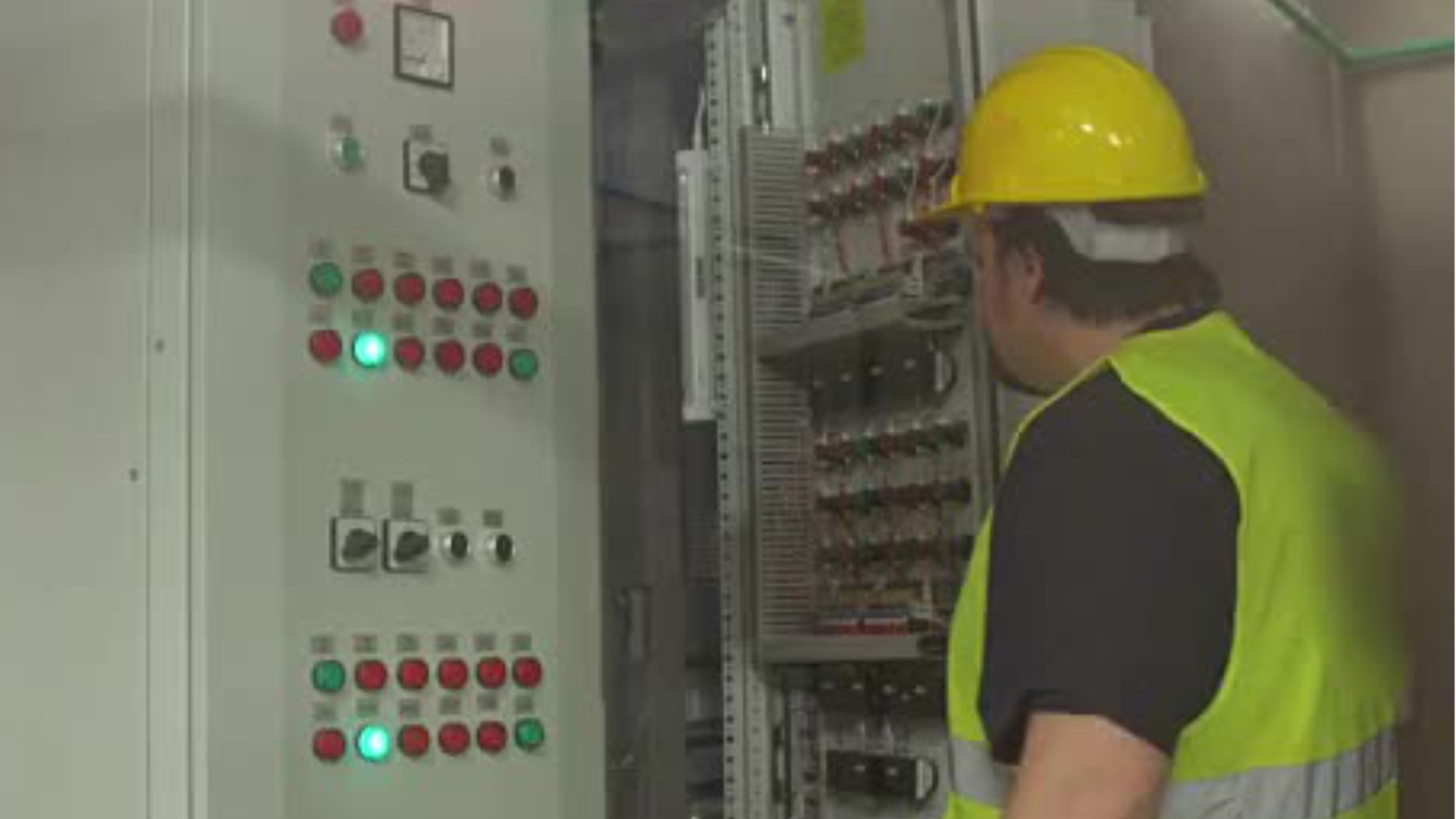Power Plant Operators
Auxiliary Operator, Control Room Operator, Operations and Maintenance Technician (O and M Tech), Power Plant Operator
 Select a military branch to see samples.
Select a military branch to see samples.
Aerospace Propulsion; Aerospace Propulsion Apprentice, F101, F110, F118, TF34 Jet Engines (A-10, B-1, B-2, F-16, U-2 aircraft); Aerospace Propulsion Craftsman, F100, F101, F110, F118, F119, F135, TF34 Jet Engines (A-10, B-1, B-2, F-15, F-16, F-22, F-35, U-2 aircraft); Aerospace Propulsion Helper; Aerospace Propulsion Helper, TF33, CF6, F103, F108, F117, TFE-731, TF39, PW 2040, F138 Jet Engines (Airlift, Special Mission, and B-52 aircraft); Aerospace Propulsion Journeyman, TF33, CF6, F103, F108, F117, TFE-731, TF39, PW 2040, F138 Jet Engines (Airlift, Special Mission, and B-52 aircraft); Electrical Power Production; Electrical Power Production Helper; Facility Systems Superintendent; Missile And Space Facilities Craftsman
Aircraft Powertrain Repairer; Cannon Crewmember; Cavalry Scout; Combat Engineer; Construction Engineering Technician; Engineer Equipment Maintenance Warrant Officer; Powerline Distribution Specialist (RC); Prime Power Production Specialist; Tactical Power Generation Specialist; Unit Supply Specialist
Aviation Maintenance Technician; Electrician's Mate; Machinery Technician; Marine Safety Specialist Engineer; Naval Engineering Specialty
Aircraft Maintenance (Fixed-Wing); Fixed-Wing Aircraft Airframe Mechanic, F-35; Fixed-Wing Aircraft Airframe Mechanic, KC-130; Fixed-Wing Aircraft Loadmaster, KC-130; Fixed-Wing Aircraft Mechanic, F-35; Fixed-Wing Aircraft Mechanic, KC-130; Fixed-Wing Aircraft Power Plants Mechanic, J-52; Fixed-Wing Aircraft Safety Equipment Mechanic, AV-8/TAV-8; Fixed-Wing Aircraft Safety Equipment Mechanic, KC-130/V-22; Fixed-Wing Transport Aircraft Specialist, C-20
Advanced Construction Electrician; CG 47 Gas Turbine Electrical Maintenance Technician; DDG-M Gas Turbine Mechanical Maintenance Technician; Gas Turbine Electrical Systems Manager; Gas Turbine System Technician (Mechanical); Mobile Utilities Support Equipment (MUSE) Technician; RL - Engineering Duty Officer - Ship Engineering; Submarine Nuclear Propulsion Plant Operator - Engineering Laboratory Technician; Submarine Propulsion Plant Electrical Supervisor; Surface Propulsion Plant Electrical Supervisor
No similar titles were found.
What they do:
Control, operate, or maintain machinery to generate electric power. Includes auxiliary equipment operators.
On the job, you would:
- Control generator output to match the phase, frequency, or voltage of electricity supplied to panels.
- Take regulatory action, based on readings from charts, meters and gauges, at established intervals.
- Control power generating equipment, including boilers, turbines, generators, or reactors, using control boards or semi-automatic equipment.
Knowledge
Engineering and Technology
- mechanical
- product and service development
Safety and Government
- public safety and security
Arts and Humanities
- English language
Manufactured or Agricultural Goods
- manufacture and distribution of products
Skills
Basic Skills
- thinking about the pros and cons of different ways to solve a problem
- talking to others
Problem Solving
- noticing a problem and figuring out the best way to solve it
Abilities
Verbal
- listen and understand what people say
- communicate by speaking
Ideas and Logic
- notice when problems happen
- use rules to solve problems
Attention
- pay attention to something without being distracted
- do two or more things at the same time
Hand and Finger Use
- hold or move items with your hands
Personality
People interested in this work like activities that include practical, hands-on problems and solutions.
They do well at jobs that need:
- Stress Tolerance
- Self-Control
- Cautiousness
- Integrity
- Attention to Detail
- Dependability
Technology
You might use software like this on the job:
Electronic mail software
- Email software
- Microsoft Outlook
Presentation software
- Microsoft PowerPoint
Industrial control software
- Distributed control system DCS
- Yokogawa FAST/TOOLS
Education
Education: (rated 2 of 5)
high school diploma/GED or
associate's degree
usually needed
associate's degree
usually needed
Job Outlook
Below Average
New job opportunities are less likely in the future.
Explore More
- Biomass Plant Technicians
- Gas Plant Operators
- Geothermal Technicians
- Hydroelectric Plant Technicians
- Stationary Engineers & Boiler Operators
You might like a career in one of these industries:
See more details at O*NET OnLine about Power Plant Operators.






